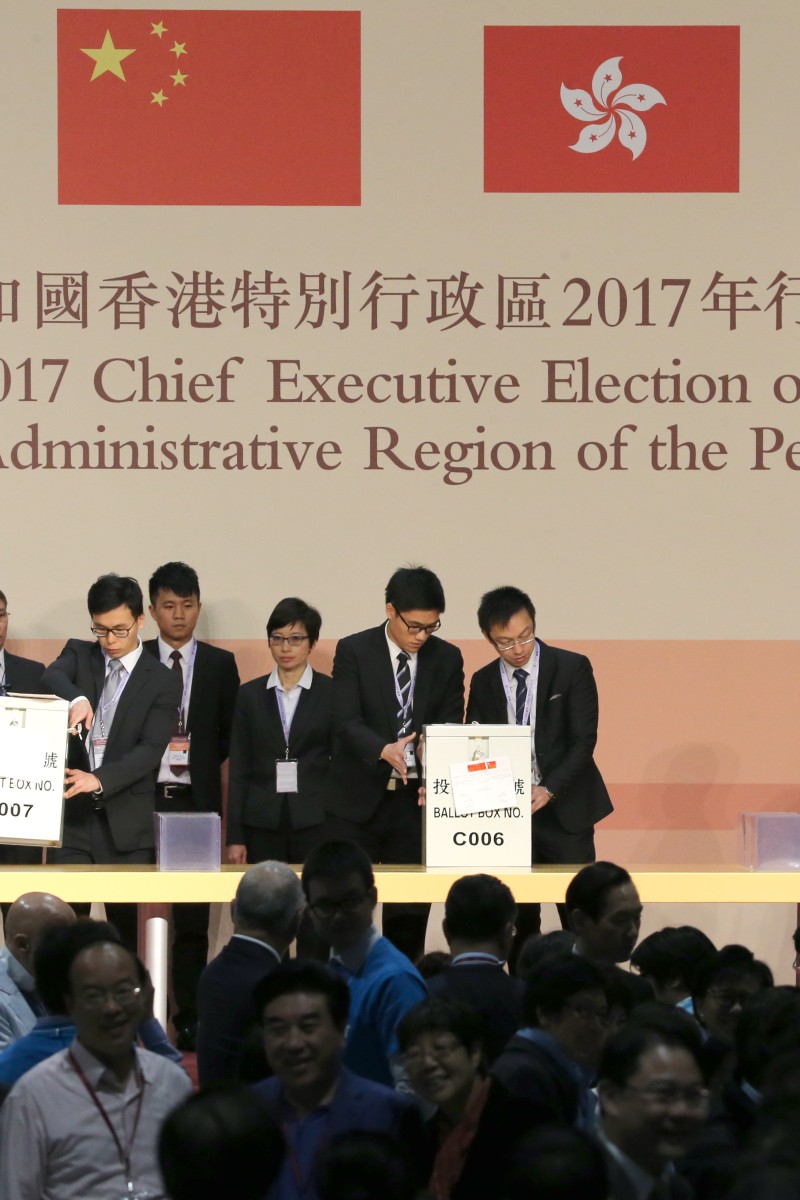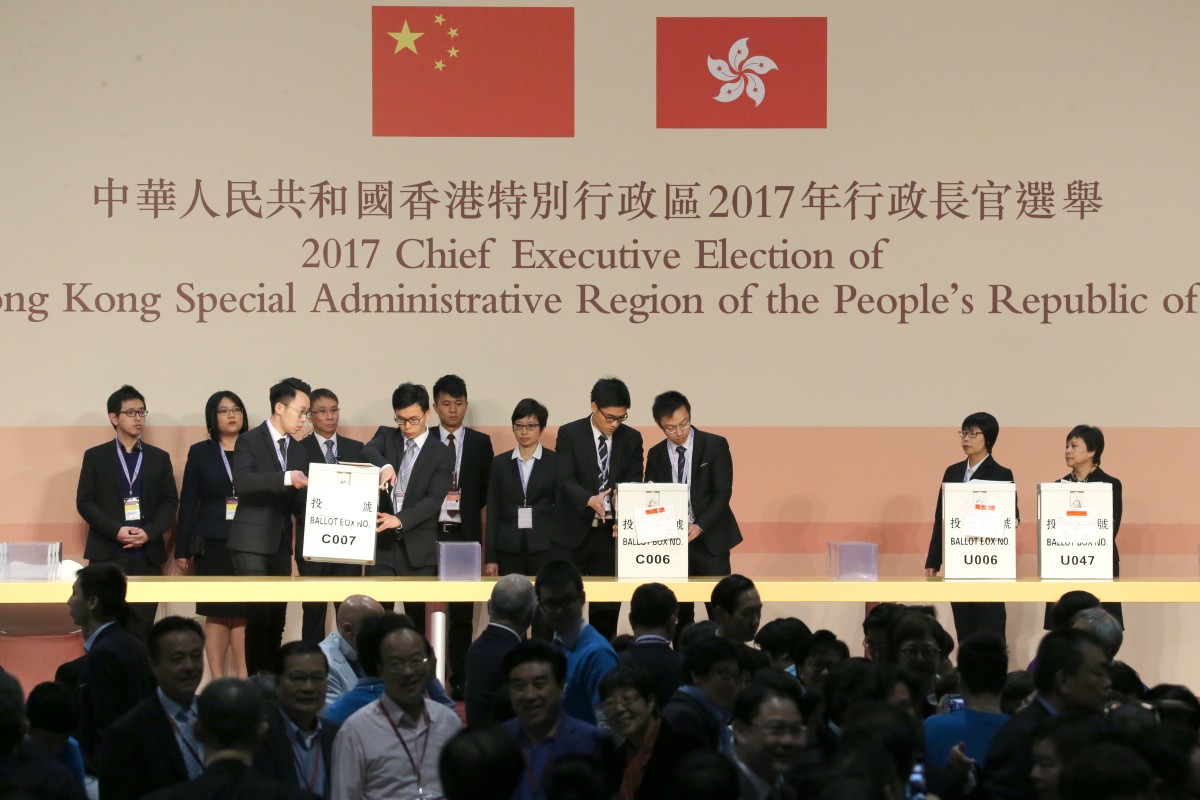
Carrie Lam has failed to win the hearts of the people, but Beijing doesn’t care
Hong Kong’s chief executive “election” is just a trick to hide the fact that the central government appoints our leader

 Staff of the Electoral Affairs Commission move ballot boxes on stage during Hong Kong Chief Executive Election.
Staff of the Electoral Affairs Commission move ballot boxes on stage during Hong Kong Chief Executive Election.The vast majority of Hong Kong’s 7.3 million people had no say in deciding their next leader. Instead the next chief executive was “elected” by 1,200 people, largely pro-establishment loyalists. It’s clear that the office of CE is granted by the mainland government, and so he or she bears no responsibility to the Hong Kong people.
Three candidates ran for the post: two previous officials, Carrie Lam Cheng Yuet-ngor and John Tsang Chun-wah, and retired judge Woo Kwok-hing. In the end, Lam, under no surprise, was chosen as the next chief executive and will hold the post for the next five years.
Since Hong Kong was returned to Chinese rule in 1997, it was promised that Hong Kong will have a “high degree of autonomy” under the “one country, two systems” principle. However, recent events have showed otherwise. Mainland authorities have increasingly tightened their control over the city, detaining Hong Kong booksellers in late 2015 and barring elected pro-independence legislators from taking office in 2016.
In truth, we are living under an illusion that Hong Kong is a democratic city. There is no more “one country, two systems”, and the small-circle “election” is nothing but a trick to whitewash the fact that Beijing appoints the head of Hong Kong’s government.
Hong Kong people have constantly pushed for the right to vote, and for universal suffrage to elect their leader. However, in Beijing’s eyes, a genuine election by Hong Kong people would make it harder for the Communist Party to rig the result.
In 2014 Beijing insisted that any reform of the existing system for choosing the chief executive should be subject to a veto process, to screen out candidates who could not be relied upon to do as they are told. It fears that a real election could produce a leader who is not duty-bound to the Communist Party and could not be trusted. The system ended up unchanged and we were left with 2017’s meaningless imitation of an election.
If we look back, it could be argued that the past three leaders, Tung Chee-hwa, Donald Tsang Yam-kuen and Leung Chun-ying, all had some semblance of a popular mandate; or at least, all three entered office with generally positive opinion poll ratings.
But Carrie Lam’s case was totally different. The last two months showed that her public support was the least impressive compared to the other two competitors, and it was obvious that the majority of Hong Kong people did not want her to be the next chief executive. Lam has consistently failed to win the hearts of the people, but Beijing does not care. Her landslide win speaks volumes about how Beijing is becoming bolder in interfering in Hong Kong’s political affairs.
This chief executive election gave the central government two options: one, to rectify the mistakes made over recent years; or two, to become even more forceful in their attempt to block democracy. They chose the latter.
Beijing could have easily chosen the more popular, more affable John Tsang, who earned an unprecedented degree of public support while running his campaign. It is not as if Tsang would disobey and not listen to the Chinese government if he was chosen. It is just that they didn’t want to compromise. The party has full confidence that it will win its fight with pro-democracy Hong Kongers.
This will be a hard battle, but we should not focus our attack on Carrie Lam. After all, she’s just the party’s puppet. What we should do is protest: against the central government’s interventions and against the rigged election system. We must still hold out hope.
Edited by Pete Spurrier
